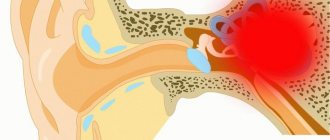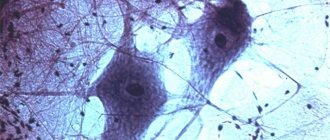There are several dozen different diseases associated with digestive disorders that pose a danger to human life. From this category of diseases, pathologies characterized by impaired eating habits should be distinguished. The danger of this group of diseases is rarely perceived properly, but it is important to understand that behind eating disorders there are problems associated with the psyche. In this article we will look at what bulimic neurosis is and talk about its dangers.
Bulimic neurosis, ravenous hunger, kinorexia, bulimia nervosa - a disease associated with an eating disorder that goes by different names
Causes
Bulimic neurosis can appear due to both external and internal factors, namely when:
- Wrong eating habits.
- Constant dietary restrictions from parents.
- Improper functioning of the central nervous system.
- Problems from endocrinology.
- Psycho-emotional imbalance.
- Genetic predisposition.
- Suffered severe stress.
- Significant mental overload.
- Serotonin deficiency in the brain.
- Alcohol or drug intoxication.
This deviation is often noticed in women. The age category is usually 18-26 years. Also at risk are those who suffered from obesity in adolescence or earlier.
A bad environmental factor, a serious shock, or some kind of disorder can aggravate the situation.
Most often, attacks are provoked by scandals and any negative effects on the psyche.
Main symptoms and signs
Symptoms of bulimic neurosis include:
- uncontrolled eating of food, up to the occurrence of painful sensations in the abdominal area;
- isolation;
- feeling of extreme hunger;
- lethargy;
- apathy;
- the desire to eat not only during the day, but also at night.
People with bulimic neurosis feel guilty after eating. They try to compensate for this by forcibly induced vomiting. This is how people try to lose weight. Grueling physical activity, taking laxatives, special herbs and teas for weight loss, and enemas are not excluded.
A person constantly thinks that he eats a lot, is not like everyone else, is gaining weight and wants to stop it, but cannot.
Stages
There are three stages of this disease:
- Initial. A person periodically overeats so much that he experiences abdominal pain, but such attacks do not occur very often. Usually the appetite wakes up in the evenings. This condition lasts about 6 months.
- Average. Overeating increases. Due to the constant feeling of guilt and reluctance to gain weight, the patient vomits after meals. If the body is strong, this can last from 2 or more years.
- Heavy. The patient's body is exhausted by violent methods of removing food. In this regard, in the severe stage of bulimia, the stomach is practically no longer able to digest food normally. Even small amounts of food cause nausea and vomiting. Severe problems appear with the gastrointestinal tract, nervous system, and also with the heart.
Bulimia at different ages
Today, about 20% of children and adolescents suffer from bulimia, 30% of men, 50% of women.
In children, bulimia often occurs due to nervousness, when the child’s psyche is not yet fully formed and a series of psychological stress follows. In addition, bulimic children are often raised in families where parents also once suffered from bulimia. If in childhood the child’s nutrition is not balanced, the diet and eating patterns are often disrupted, and there are moments in parental education that force him to eat when he is not hungry, then the likelihood of developing bulimia in adolescence sharply increases. When a child often experiences negative nervous shocks (parental divorce, domestic violence, conflicts with peers), his appetite may also increase. However, bulimia should not be confused with the usual recovery of the body after an illness or intense physical/mental stress.
Symptoms of childhood bulimia
- metabolic disorders (diabetes mellitus and others);
- habit of excess food consumption;
- psychological problems;
- mental imbalance.
In adolescents, bulimia can occur for many reasons. Most often, the source of the disease is watching food advertisements, imitating peers or celebrities, or growing up in a codependent family.
Symptoms of teenage bulimia
- constant thoughts about food;
- “cult of food”, when food occupies a central place in the hierarchy of values;
- strong fear of getting fat, low self-esteem.
Bulimia in men and women
- excess weight (obesity);
- depression, apathy, depression;
- strong dependence on food.
- increased anxiety and chronic stress;
- taking medications against the background of a somatic or mental illness.
Men, unlike women, rarely use medications (laxatives) and even less often induce vomiting.
What can bulimia lead to?
With bulimia, the patient constantly overloads the stomach and overeats. Consequently:
- problems with the digestive system;
- interruptions in heart function;
- depression;
- load on the joints and the appearance of associated pathologies.
Due to systematic vomiting, the following may occur:
- enamel damage, caries;
- gum problems;
- inflammatory process of the esophagus;
- dehydration and cramps;
- impaired metabolism;
- constipation;
- dysfunction of all organs and systems.
And the most important thing is a feeling of weakness, instability of the nervous system. A person is no longer able to control himself. He becomes uncommunicative, rarely leaves the house, and problems appear in his personal life and at work. Any outside statements and hints are taken very seriously. The patient takes all the words of strangers to heart, which suppresses him even more.
What can trigger bulimia
Several reasons can provoke the development of bulimia: somatic, genetic, psychological, socialization disorders.
Somatic causes include: metabolic pathologies, tumors, toxic lesions of the brain (especially the hypothalamus), diabetes mellitus.
Genetic predisposition can provoke the development of physical and mental illnesses that provoke bulimia. The main social causes of bulimia are: society’s attitude towards weight, the desire for supposedly ideal body proportions.
Often the cause of the disorder is the desire to lose weight or maintain weight within certain limits. As a result, a person experiences stress and is afraid of gaining extra pounds. As a result, the risk of developing bulimia increases, and fear for your figure is relieved by eating. In this case, a person can artificially induce vomiting in order not to gain weight from the food he has eaten, or use a large amount of laxative to quickly remove food from the body.
Psychogenic causes include: anxiety, immaturity of personality, depression, low self-esteem, negativism, depression, psychological trauma. The stress that is caused by these conditions is dulled by the most accessible pleasure: food.
How does bulimia manifest?
The first symptom of bulimia is uncontrollable hunger. A person constantly wants to eat and this craving cannot be stopped on his own. At the heart of the disorder itself is always anxiety and fear that something in life is going wrong. When eating food, a person does not feel full. And the mood improves only while eating. When there is no access to food, the patient becomes nervous, extremely irritable, performance decreases, and concentration decreases.
The second sign of the disease is excess weight. True, this symptom does not occur in all patients. If a person experiences a constant fear of gaining extra pounds, a reverse reaction is possible. Then the patient's weight may be average or low. People who are afraid of gaining weight try with all their might to get rid of the calories they eat, using different methods to do this:
- artificial vomiting;
- loosening stools (using stale foods or laxatives);
- excessive exercise.
Any disease goes through several stages. Bulimia is no exception. At the first stage, the patient cannot control the amount of food eaten. Such “breakdowns” occur once or several times a month. If the onset of the disease is not detected in time, bulimia develops into a second, chronic state.
Diagnostics
Differentiated diagnostics will help to understand the exact cause of what is happening. The doctor will talk with the patient. He will find out in which cases a deviation is observed, what symptoms are present, whether there are concomitant diseases, etc. A complete history taking can provide good information. The outpatient card must be examined. Consultation with other specialists may be necessary.
The doctor will also send you to check the organs of the gastrointestinal tract, heart and kidneys. To do this, you will have to undergo diagnostic tests in the form of:
- fibrogastroduodenoscopy;
- electrocardiography;
- ultrasound
You will definitely need to take a clinical blood and urine test. If anything is discovered, it is advisable to undergo additional research.
Afterwards, you will be referred to a psychologist with the results. The specialist will conduct tests that will help identify all neuropsychiatric disorders. To identify bulimic neurosis, a special technique of Canadian specialists is used. If there are 2-3 attacks per week, which are repeated for at least a month, then the diagnosis of bulimic neurosis is confirmed.
Consequences of bulimia nervosa
Most often, a patient with bulimia carefully hides his disease. They usually do not experience excess weight or excessive emaciation, but the doctor can easily diagnose the disease. Symptoms of bulimia:
- Scars on the fingers (from teeth during artificially induced vomiting);
- Problems with the digestive system;
- Depressive states;
- Swelling of the salivary glands.
To diagnose bulimia, a doctor needs only the combination of these symptoms, but only the patient’s recognition of periods of overeating and purging allows for the greatest effect from the therapy.
What does bulimia suffer from?
As a result of the disease, internal organs (gastrointestinal tract, blood vessels, heart) are affected, metabolism is disrupted, protective functions are depleted, and immunity is reduced. Obesity appears. Bulimia, as an eating disorder, is often associated with another manifestation: anorexia. If anorexia occurs, the patient refuses to eat or eats a minimal amount of food.
Whatever the initial causes of the disease and no matter how the eating behavioral disorder manifests itself, it deeply traumatizes the patient’s psyche, aggravating the already depressed and alarming symptoms. Therefore, the main leitmotif of treatment for both bulimia and anorexia will be the person’s internal psychotherapeutic work on himself.
Treatment methods
To recover, you will need complex therapy. Psychotherapy plays a special role, but medication cannot be avoided.
Important information
It is possible to cope with the disease faster when not only the patient, but also his relatives take part in the therapy.
All points are discussed with a specialist. He will help you understand the causes of bulimia and tell you how to deal with the uncontrollable desire to consume food. He will convince you otherwise, focus on other points, and develop habits that will help you cope with the problem. It is important that the family helps with this.
Antidepressants will be prescribed as medications. They will help stop bulimic neurosis. Such drugs as Prozac, Fluoxetine, Fluxen are advisable.
Personal attitude is also important. It is important to set yourself up for the positive, avoid stress and any nervous tension. It’s a good idea to find something interesting to do that will distract you. You can change something in your appearance or image, this will somewhat raise your self-esteem, mood and minimize attacks.
If during the examination any additional pathologies were identified, then their treatment is also necessary. If this is not done, poor health will overshadow the patient and, as a result, the progression of bulimia.
Prevention
Prevention lies in developing the right attitude towards food from childhood. To do this, you must not overfeed the child and under no circumstances use food rewards. Food should not become motivation.
To prevent a person from developing bulimic neurosis during a period of depression or in difficult life situations, the support and participation of family, friends and relatives is necessary. He shouldn't feel alone.
Relatives should not only surround the patient with attention, but also bring as many positive moments into his life as possible: visit museums, exhibitions, cinemas together, organize hiking trips, go fishing, hunting - depending on hobbies. If you have a tendency to overeat, your family can unobtrusively control the amount of food by replacing the dishes with smaller ones of the same size.
The head, a person suffering from kinorexia, understands perfectly well that such gluttony will not lead to good, and therefore begins to go to other extremes - he induces vomiting, drinks laxatives and exhausts himself with training so as not to become obese.
This does not give the expected results and leads to an even worsening of the condition. Only a few manage to solve their problem on their own.
Let's figure out what the mechanism of development of the disease is and its causes.
Bulimic neurosis syndrome is a mental illness caused by a dysfunction of the central nervous system, often accompanied by a malfunction of the endocrine system.
The exact cause of the appearance of this type of neurosis has not been established, so no one can be guaranteed that this problem will not affect him.
But according to the assumptions of some doctors dealing with this problem, the causes of the disease may be the following:
- abnormalities in the functioning of the thyroid gland;
- damage to the brain or spinal cord, which may be caused by disease or injury;
- mental perception of the surrounding world is impaired;
- stress.
For each person, the disease can take a different form and the direction of development is almost impossible to predict. Some can
unexpectedly feel bouts of brutal appetite, regardless of your location and time of day. In this case, the patient begins to absorb huge amounts of food, not paying attention to others.
Dangerous treatments
The following methods of combating the disease are absolutely excluded:
- Absolute restriction in food. This is additional stress that will only make the situation worse. This is done gradually and only under the supervision of a doctor.
- Consumption of alcohol or drugs. This should be absolutely excluded during treatment.
- There is no need to look for those to blame. No excuses or slander to your loved ones about what they were forced to eat since childhood will help. This will only ruin your relationship with them and again have a negative impact on the body.
- Turning to alternative medicine. It is better not to waste time on healers and sorcerers, but to immediately consult a doctor, since wasting time can only aggravate the disease.
- Taking medications at your own discretion. No medications should be self-prescribed. Any medicine is selected individually, as is the dosage.
- Using weight loss products. It is important not to eliminate the accumulated mass using teas, decoctions, creams or tablets. You need to fight the root cause.
You can’t constantly think about your shortcomings, it will only unsettle you. All thoughts should be directed towards the positive.
Bulimic neurosis drugs for treatment
After the doctor is absolutely convinced that the person has no other diseases, he is referred to a psychologist who, using certain tests, determines the presence of bulimia and its stage.
In this case, tests are not completely ruled out, since changes in the functioning of systems can be determined by a doctor even in case of bulimia. After a complete examination, the patient is prescribed treatment. Its duration ranges from 6 months to a year, depending on the person’s personal mood. There are also situations when recovery occurs very quickly; in this case, drug treatment can be partially stopped, depending on the physical condition of the person, but you still need to be observed by a psychotherapist for some more time.
Treatment of the disease at home is impossible. A person should initially consult a psychotherapist or psychologist. Since many people do not admit that they have such a disease, it would be better if the doctor begins working with the patient with a general introductory conversation and tries to identify the causes of the disorder in the person’s nervous system.
After the conversation, it is necessary to proceed to drug treatment. Most often, such patients are prescribed antidepressants and sedatives. In this case, treatment is aimed at restoring the person’s neuropsychic state and eliminating symptoms of depression.
For complete treatment, it is necessary to seek the help of a nutritionist. You need to start eating right. Sometimes it is advised to keep a schedule or diary of food intake. In this case, you need not only to eat healthy food, but also to follow the regime of its intake. It is as if a person must again learn to chew and swallow food correctly, control the feeling of hunger and satiety.
The third stage is necessary for those patients whose disease is in an advanced stage. If there are disturbances in the functioning of the liver, kidneys, digestive or cardiovascular systems, the patient is prescribed medications aimed at restoring body functions.
Bulimic neurosis is primarily a nervous disease. It is very important for a person who has started treatment to carry it out fully and not to interrupt. Since ineffective treatment can lead a person to even greater neurological diseases and disappointment in medicine.
People starting treatment need to eat more foods rich in vitamins and minerals. As a result of constant cleansing of the body, their percentage in the body is reduced. The lack of minerals and trace elements can lead to more severe diseases, which can only be eliminated with the help of medications.
The patient is recommended to exercise. It will be better if the loads are not very heavy and take place on positive emotions. This could be swimming, cycling, fitness or just walking. 30 minutes a day will be enough. It is better if sports activities take place in groups with friends or children. Regular physical activity will help strengthen the heart, muscles and general condition of a person.
With proper and regular treatment, a person’s recovery is almost one hundred percent. But, nevertheless, the patient is recommended to remain under the supervision of a psychotherapist for some time to prevent recurrence of the disease.
apatii.net
Bulimia (bulimic neurosis) is a mental disorder associated with eating. It is characterized by attacks of hunger, accompanied by uncontrolled overeating and lack of satiety. Occurs in diseases of the central nervous system and endocrine system. Along with anorexia, it refers to a mental disorder of consciousness.
The main causes of bulimia are the patient’s low self-esteem or severe stress. An imbalance of hormones and chemicals in the brain can also serve as the basis for its development. It has long been proven that heredity also plays a significant role in the occurrence of bulimic neurosis.
The first signs of the development of bulimia are a strong feeling of hunger that cannot be satisfied with a standard amount of food. The patient will eat everything he can find until the bout of uncontrollable gluttony ends. This is one of the patterns of disordered eating behavior. With another type of disorder, a person can eat almost without stopping. There are cases when attacks of hunger occur only at night (night feeding). In all cases, after the attack is over, the patient tries to get rid of the food eaten by taking laxatives or inducing vomiting.
The consequences of bulimia for the body can be very unfavorable. First of all, tooth enamel is destroyed, and gum problems begin. This is due to repeated exposure to stomach acid during vomiting. For the same reason, patients often experience inflammation of the esophagus and parotid salivary gland. Dehydration that results from taking laxatives disrupts the balance of electrolytes, which can lead to muscle cramps and twitching.
Bulimia nervosa leads to disruption of the functioning of almost all organs and systems. In addition to intestinal disorders, symptoms of liver and kidney dysfunction are often observed. This disease is dangerous for the stomach because at the peak of vomiting, internal bleeding can begin. In women, the menstrual cycle is often disrupted. Often such patients are susceptible to diseases of the cardiovascular system due to metabolic changes caused by pathological eating behavior.
Bulimia is also manifested by changes in the patient's behavior. He becomes depressed and unsociable. Your mood improves only when you eat. A person suffering from bulimic neurosis constantly tries to control himself, limit himself in food, and since this fails, neuroses and depression develop. Efficiency drops, social circle narrows.
When examining a patient, it is necessary to pay attention to the patient’s psychological state and symptoms indicating the development of bulimia. It is necessary to do a general and biochemical blood test, an electrocardiogram and an FGDS of the stomach and intestines. If bulimic syndrome is suspected, the patient is sent for further examination to specialists and a medical psychologist.
A psychotherapist can conduct a special test for the presence of bulimia. It includes questions about the amount of food eaten, how to get rid of it, weight fluctuations, etc. Based on the results of the examination, a diagnosis of “bulimic neurosis” is made.
As mentioned above, anorexia and bulimia are mental disorders. Therefore, the treatment of these diseases should be not only medicinal, but also psychological. Let's look at both of these methods in more detail.
It is almost impossible to get rid of bulimia on your own. This requires the help of a psychotherapist. The most common treatment for bulimic neurosis is cognitive behavioral therapy. The psychologist should help the patient identify those attitudes that caused him to develop bulimia nervosa. Patients are often advised to keep a diary in which they record all the attacks of bulimia - when the hunger began, what preceded it, how much food was eaten, etc. By analyzing these records, the doctor helps the patient find a pattern in the occurrence of attacks and develop a line of behavior that reduces their number to a minimum.
Diet therapy. The next stage of treatment for bulimia is a consultation with a nutritionist. He will tell you how to properly organize your diet, how much food is recommended to eat at one time, what the break between meals should be and much more.
In the most severe cases, when psychotherapy and diet do not help, drug treatment is carried out. Quite often, patients themselves, wanting to recover from bulimia, begin to take medications that dull hunger. Doing this is strictly prohibited, since the electrolyte balance is already disturbed, and such drugs lead to more serious consequences.
Sedatives and antidepressants are used to treat bulimia. These are mainly fluoxetine (Prozac) tablets. They are used in the treatment of depression, eating disorders, anxiety disorders, etc. Antidepressants begin to act only 2-3 weeks after the start of use. The doctor initially begins to treat these drugs with small doses, gradually increasing them, and since not all patients respond well to these drugs, an examination by the attending physician is necessary every two weeks.
Antidepressants are extremely rarely prescribed to people under 18 years of age. They are also not recommended for people suffering from kidney, liver, heart diseases and those at risk of developing epilepsy.
First of all, this is a good psychological climate in the family, and the development of correct self-esteem in the child. Food should not be used as a way to punish or reward children. Very often, teenagers begin to worry about their appearance, imaginary fatness, or, on the contrary, excessive thinness. In this case, it is extremely important to monitor the child’s nutrition, the amount of food eaten and behavior after meals.
source
In the twenty-first century, more and more people suffer from neurosis. Bulimia is a type of neurosis. We will talk about it later in the article.
Bulimia is a disorder in which a person eats large amounts of high-calorie foods and does not eat enough, although there may be signs of overeating. People called this disease “wolf hunger.”
It is interesting that with bulimic neurosis a person is well aware that he is overeating, understands that such high food consumption leads to negative consequences, but cannot stop. Therefore, very often the patient’s feeling of crazy hunger is replaced by a feeling of guilt, provoking the development of deep depression. The patient gradually loses interest in life and may find solace in alcohol or drugs.
Many people experiencing bulimia try to help themselves by putting two fingers in their mouth to artificially induce vomiting, or by using a laxative. But these actions can lead to even more dire consequences.
Self-treatment of this disease is impossible, since a person in this condition needs a qualified doctor, namely a psychotherapist. If you treat yourself, you can cause enormous harm to your body and nervous system.
The causes of bulimic neurosis are many factors. For example, this disease can be acquired if the patient has serious disorders in the endocrine system, and this disease can also appear due to a disorder of the central nervous system.
Many scientists argue that this condition is associated with mental disorders. By the way, they can be caused in early childhood, when parents did not show proper attention to their child. This also includes the problem of numerous criticism of the child’s appearance. Children thus learned in childhood to eat stress food.
Doctors identify several manifestations of the disease described:
- attacks of uncontrollable appetite;
the ability to absorb large portions of food at one time;
In order to determine the presence of symptoms of bulimia and carry out treatment according to a clearly established plan, the doctor needs to talk with the patient. Of course, there are currently many different tests that will help determine this disease. But the most basic thing in medical practice is the Canadian questionnaire of the patient’s attitude towards food, which can help the doctor determine the severity of bulimic neurosis.
True, doctors often do without this diagnosis, so you need to be extremely careful in choosing a specialist for the patient. As a rule, a psychotherapist deals with bulimic neurosis, because in the early stages it manifests itself only as a change in mental state.
In most cases, the doctor will need to ask his patient a number of essential questions on the basis of which he can prescribe medications. The doctor should find out:
- During what period of time did the patient begin to consume more food than usual?
- Was he limited to the usual portions or did he immediately have to increase them?
- How much food does the patient eat per day?
- Do any of your close relatives suffer from obesity?
- Does the person self-medicate by inducing vomiting and cleansing the intestines with a laxative.
If the disease has already begun to progress, then the patient needs to undergo examinations to exclude other diseases. To do this, he needs to conduct ECG studies, fibrogastroduodenoscopy, general and chemical blood tests. And only after ruling out the presence of gastrointestinal diseases, the patient is referred to a psychiatrist.
The patient can be treated on an outpatient basis or while in the hospital. Typically, patients with a severe form of the disease are admitted to the hospital. Based on statistics, the diagnosis of “bulimia” is made if attacks of the disease occur at least twice within three months.
In the initial stages of bulimic neurosis, the main emphasis is on psychotherapy. The specialist tries to identify traumatic facts from the patient’s life that led to the development of the disease and helps to find clues that will make it possible to reconsider his pathological beliefs. And in severe cases, when the patient’s physical health begins to suffer, he is prescribed medication.
Medications for bulimic neurosis are usually prescribed to restore the processes of inhibition and excitation in the human brain. The patient is also prescribed medications to improve the emotional background, sedatives, and appetite suppressants. With proper treatment, this pathology is reversible and amenable to therapeutic effects.
But in addition to treating the patient himself, the doctor also works with family members. Helps them understand that the patient’s condition is caused by a lack of attention on their part and a state of stress, which the patient is trying to “eat away.” Treatment will not be effective if loved ones do not take part in it, showing attention, care and maintaining the patient’s confidence in the positive outcome of treatment.
As a rule, the process lasts for a year, and during this time the patient learns to control the amount of food he eats and reconsiders his attitude towards himself.
If you find yourself with similar symptoms, you should immediately consult a doctor. In general, people with low levels of self-esteem, as well as with mental disorders, are at risk of developing bulimic neurosis. And if you perceive any criticism or disapproval from others very sharply, trying to drown out the offense with something, including food, then you urgently need the advice of a specialist. And only an experienced doctor will be able to help get rid of this pathological condition, which, as a rule, leads to another, more severe mental disorder - anorexia.
source
Bulimic neurosis is a psychiatric disease associated with an eating disorder.
This pathology is associated with the personality structure, the characteristics of a person’s relationship with himself, and personal stories in the past.
Provoking factors are:
- Conflicts in the sphere of contacts, when relationships with loved ones do not work out.
- Exposure to public opinion.
- Lack of good attitude towards oneself, low self-esteem.
- Psycho-emotional stress, obsessive states, as a result of which many natural reflexes are blocked. A person, through overeating, tries to compensate for the discomfort in his life in order to reward himself and give pleasure. This is a way to deal with emotional problems in his life.
Signs of pathology appear:
- Anxiety, depression.
- Irresistible strong cravings for food. Patients are unable to control their eating behavior.
- Paroxysmal overeating. This is a situation when a person begins to consume a huge amount of high-calorie food and cannot stop when a feeling of fullness appears.
- As a result, heaviness in the stomach, discomfort, and nausea occur. These symptoms accompany negative experiences: remorse; self-accusation; guilt; self-hatred; Fear that people around you will find out about overeating.
- Then the patient tries to eliminate the negative consequences of bouts of overeating. He deliberately induces vomiting; takes diuretics; drugs that enhance peristalsis. The patient exercises until exhaustion.
- Damage to a person's hands caused by repeated insertion into the mouth to induce vomiting and empty the stomach. The joints of the hands become wrinkled and stiff.
- The consequence of constant irritation of the esophagus is the presence of bloody impurities in the vomit.
- Flatulence; constipation, which is complicated by mucus secretion and hemorrhoids.
- Irritation in the throat area.
- Violation of the integrity of teeth and gums.
- Swollen face.
- Patients with bulimia hide their disease and often prefer to eat alone so that others do not see the amount of food they quickly absorb.
- A person spends time in the bathroom or toilet after every meal.
Disorders gradually develop:
- Bulimic neurosis begins with the absorption of various dishes and sweets in huge quantities at one time. A person eats repeatedly, and then immediately tries to get rid of the consumed food in various ways. This happens several times a day.
- The patient's self-image is deformed. He always sees himself differently from what he really is. Patients are overly concerned about their weight. They constantly complain about excess body weight, although it is normal.
- The perception of food is distorted. The patient sees in it not a source of nutrients and energy, but a way to gain pleasure and relieve stress.
- Most often, the disease affects girls and women. Among representatives of the stronger sex, such a disease is rare. Statistics show that for every 9 sick women there is 1 man.
- Symptoms of the disease worsen in winter, when there is a lack of natural sunlight.
What are the dangers of bulimia?
- Repeated artificial vomiting leads to damage to internal organs.
- The esophagus suffers greatly, since the acidic contents of the stomach are constantly thrown into this muscular tube. This acid corrodes the walls of the esophagus, causing ulcers to appear. Symptoms of reflux occur - an inflammatory lesion of the esophagus. The sphincter between the stomach and esophagus is damaged. Tissue rupture may occur.
- Some nutrients do not enter the body. Therefore, hair begins to fall out, the structure of the nails is disrupted.
- The stomach contains hydrochloric acid. Tooth enamel cannot resist it. Therefore, over the years, the upper shell of the tooth is destroyed and caries develops.
- The parotid glands become enlarged and inflamed.
- Dehydration and kidney failure caused by vomiting occur.
- Dependence on laxatives occurs.
- Disruptions in the menstrual cycle occur.
- Patients suffer from abdominal pain and bloody vomiting.
- Characterized by sudden changes in mood and bouts of depression.
- As a result, a very difficult situation arises that may have a sad ending.
- Typically, patients hide in the toilet to induce vomiting, but loved ones do not notice this.
The doctor prescribes diagnostic procedures:
- General urine analysis. Severe dehydration is determined by high density urine.
- Laboratory blood tests may show deficiencies of magnesium, sodium, potassium and other essential substances. The amylase content is determined. Its elevated level indicates regular vomiting.
- If necessary, an examination of internal organs is carried out.
A health treatment course is prescribed by a doctor:
- Behavioral therapy: conversations with the patient. Their goal is to explain the situation.
- Drug treatment. Medicines are used that improve the patient's mood - antidepressants.
- Phototherapy, which allows you to compensate for the lack of sun. This treatment with white light helps reduce the severity of symptoms of the disease.
- Psychotropic drugs containing lithium are used, which doctors prescribe for the treatment of obsessive states: mania, depression.
- Fluoxetine, topiramate are drugs that are used to treat a dangerous condition.
Bulimic neurosis is a disease that requires referral to a psychiatrist.
Symptoms of the disease and uncontrolled appetite will disappear after a course of treatment from an experienced doctor.
source
Bulimic neurosis is a mental disorder caused by a nervous pathology in which a person eats excessive amounts of food, and then tries to get rid of excess calories by inducing vomiting. Forms of the disease without inducing vomiting are also possible; in this case, overeating is followed by a period of fasting, severe food restrictions, and strict diets.
The causes of the disease have not been fully established. It is assumed that this eating disorder occurs due to social pressure. A person begins to attach excessive importance to his figure. At the same time, giving up your favorite junk food is difficult. After some time, a breakdown occurs, the patient gorges on his favorite dishes, feels guilty for consuming excessive amounts of calories, and eating foods that are not dietary. He often scolds himself for his weak will and punishes himself.
There are a number of risk factors. Most often, the pathological condition is observed in girls 17-25 years old. There is a genetic predisposition to the disease. If close relatives are sick, the likelihood of pathology occurring increases. People who were overweight in childhood or adolescence are more likely to get sick. Emotional problems also increase the likelihood of bulimic neurosis: food is used as a consolation, a way to get pleasure, which is why food abuse begins.
Social pressure influences. If a person’s figure is constantly criticized and advised to lose weight, complexes, self-hatred, and low self-esteem may develop. Professional participation in certain sports also contributes to the disease: if the athlete’s weight is to be low, relatives and coaches will put pressure on him. At the same time, stress arising from occupation provokes appetite, which is not always possible to control.
With this pathology, a person spends most of his time thinking about weight, figure, and nutrition. There is a panicky fear of weight gain and the appearance of fat deposits. A person is aware of the abnormality of his eating behavior, unlike patients with anorexia nervosa, and may worry about this.
A strong appetite arises, which the patient is unable to control. Because of this, a person overeats to the point of discomfort and pain. During an attack, the amount of food greatly exceeds that taken at other times. After eating, a person induces forcible vomiting. Some patients prefer not to get rid of food in this way and punish themselves with grueling workouts and starvation diets. Between attacks, they tend to count calories, the amount of proteins, fats and carbohydrates.
Patients often resort to using medications to avoid weight gain due to constant attacks. Laxatives and diuretics are used in large quantities. Enemas are used less frequently. Herbal teas or special supplements designed to control appetite and speed up metabolism can be used.
For treatment, you need to see a doctor and psychotherapist. The therapy is comprehensive: a psychologist helps to understand the causes of the problem, normalize the emotional state, and improve eating behavior; the doctor prescribes special medications.
Several options for psychotherapy are used. Cognitive behavioral therapy is often used. This method helps to identify destructive beliefs, replace them with new ones, and instill in the patient useful habits and behavior patterns. Interpersonal therapy can help improve communication skills with others, which can help overcome low self-esteem, which often leads to bulimia. Family psychotherapy helps improve family relationships and get rid of destructive communication patterns, which often cause pathology in adolescents.
Antidepressants are used among medications. You should take only those medications prescribed by your doctor, following the prescribed dosage. You should not prescribe medications on your own due to possible harmful effects on the body.
Bulimia nervosa can be cured. The success of therapy depends on the patient's behavior. If a person refuses treatment or does not take prescribed medications, the pathology cannot be eliminated. In this case, there is a high probability of death from liver or kidney failure. The disease may recur. When the first signs appear, you should consult a doctor to avoid harm to the body.
To prevent the onset of the disease, you should get rid of existing mental disorders. It is recommended to work with self-esteem. You should find something that interests you, a hobby, communicate with people in order to have other interests besides your figure, self-confidence. Relatives should support the person, not criticize the figure, concentrate on the merits, so as not to create excessive importance of appearance and weight.
source










